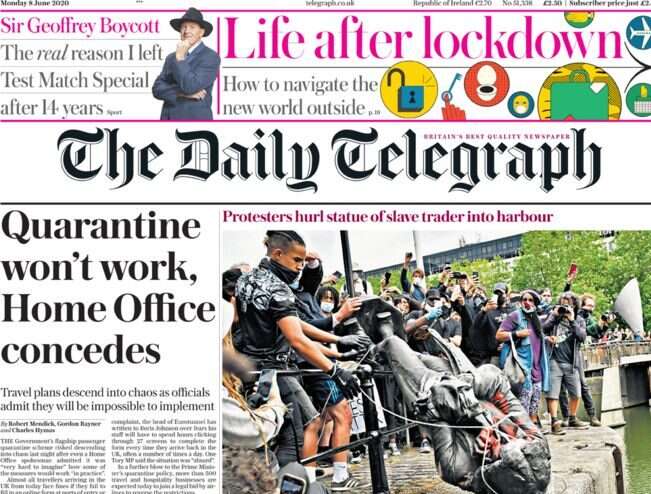
Telegraph Media Group has decided to return all the furlough money it received from the Government after remaining profitable during the worst months of the coronavirus crisis.
The publisher of the Daily and Sunday Telegraph announced in mid-April it was furloughing 90 non-editorial workers until the end of May following “material reductions” in its advertising revenue as a result of the pandemic.
It put all remaining non-editorial staff on four-day weeks from 1 May and cut salaries by 20%.
But the publisher revealed on Friday these “prudent” measures and a “very strong subscription performance” have helped it remain profitable.
It is therefore paying back all the money it claimed from HMRC to furlough workers as part of the job retention scheme.
In addition, all staff have now returned to a five-day week and those who worked during May with a reduced salary and working hours will be compensated for lost earnings, TMG said on Friday.
Chief executive Nick Hugh said: “Whilst, like many other businesses, revenues and profits have been hit significantly, the business has remained profitable and cash generative throughout the period.
“Our subscription strategy goes from strength to strength which is testament to our outstanding journalism.”
The Telegraph saw growth in new subscribers of more than 200% in March alone. It reached the milestone of 500,000 subscribers two weeks ago.
It is now halfway to its goal of 1m paying subscribers by 2023.
The Telegraph follows in the footsteps of The Spectator magazine which announced last week it was paying back its own furlough money to the Government. Both titles are owned by the Barclay Brothers.
Spectator chairman Andrew Neil said the Spectator had taken a financial hit but “nothing as bad as I feared”.
The bulk of the magazine’s revenues now come from subscriptions which continued to “rise strongly” during the pandemic, he said, even though events, newsstand sales and advertising were down.
Neil revealed the magazine reached 87,587 sales in the first quarter of this year, of which 56,186 were print subscriptions.
Other major publishers to have furloughed staff include Reach (nearly 1,000 employees), the Evening Standard, City AM (which has just rotated some of the staff who are stood down), The Independent (a “limited” number of staff), JPI Media (350 employees), Newsquest (about 10% of staff, mainly in advertising), and the Guardian (100 commercial staff).
Guardian editor-in-chief Katharine Viner told BBC Radio 4’s Media Show last week that the publisher had received more than 200,000 new financial supporters since the start of March – 95,000 who set up a monthly contribution and 105,000 who gave one-off donations.
She said the company was still projecting to be £20m down in the first half of the 2020/21 financial year because of the drop in advertising revenue and newsstand sales, and defended its use of the furlough scheme.
Asked by Media Show host Amol Rajan whether she felt “queasy” about taking Government money, Viner said: “I think these are jobs where people are not working so I think it’s reasonable, that’s what the furlough scheme is for…”
Sun and Times publisher News UK and Daily Mail, Metro and i publisher DMGT have not taken part in the furlough scheme.
News UK instead asked staff to volunteer for unpaid leave or reduce their working hours, with a corresponding cut in pay, while DMGT offered staff shares in the company to compensate them for taking a pay cut during the pandemic.
Email pged@pressgazette.co.uk to point out mistakes, provide story tips or send in a letter for publication on our "Letters Page" blog
